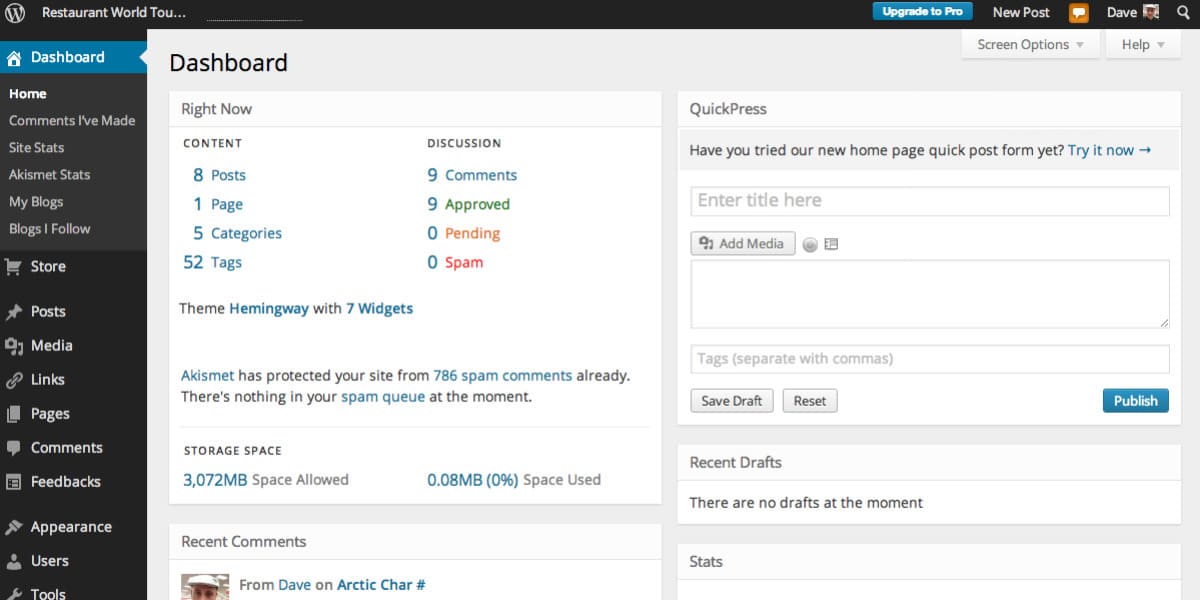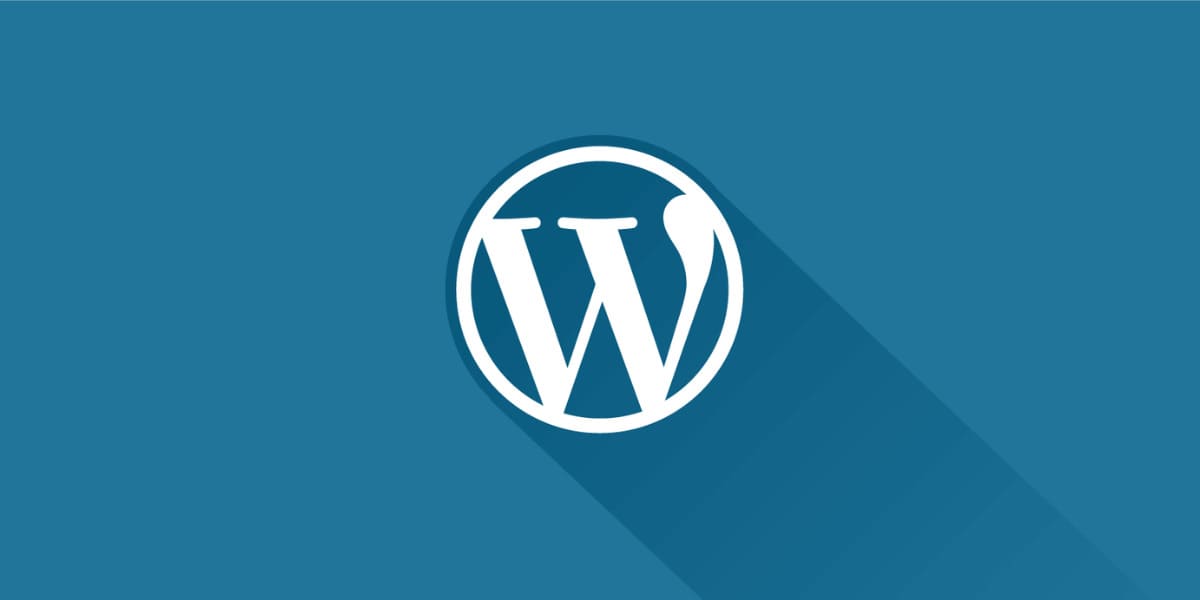
WordPress
WordPress is a well-known open-source content management system (CMS) that allows users to create, manage, and publish web content. It is a free piece of software that may be downloaded and installed on a web server to enable the creation of a website or blog. WordPress has become the most popular CMS in the world, powering more than 40% of all websites on the internet, thanks to its user-friendly interface and huge plugin ecosystem.
Matt Mullenweg and Mike Little first released WordPress in 2003 as a fork of another CMS named b2/cafelog. The project’s purpose was to provide an easy-to-use platform enabling bloggers to publish their work on the web without having to know how to code. Christine Selleck Tremoulet, a friend of Mullenweg, coined the term “WordPress” as a play on words combining “web” and “log.”
WordPress has matured over time into a full-fledged CMS that is used by enterprises, governments, and individuals alike. The platform is supported by a large community of developers, designers, and users that contribute to its development and help others. WordPress is well-known for its versatility, scalability, and customizability, and it remains the platform of choice for anyone wishing to build a website or blog.

ADVANTAGES
WordPress has an easy-to-use interface, even for individuals with no coding skills. The interface is simple to use, and adding new pages, posts, photos, and plugins takes only a few clicks.
WordPress has a large community of developers, designers, and users who contribute to its development and provide help to others because of its popularity. This means you get access to a plethora of resources and lessons, as well as a community to seek assistance from.
WordPress is highly configurable and flexible, with dozens of themes and plugins available to extend its functionality. It may be used to create anything from a simple blog to a sophisticated e-commerce site.
WordPress is SEO-friendly, and there are numerous plugins available to improve your website for search engines.

DISADVANTAGES
WordPress is a frequent target for hackers, and sites built with it can be subject to security breaches. This risk, however, can be reduced by using adequate security measures.
WordPress upgrades and maintenance are required on a regular basis to maintain your site secure and operational. This can take some time, especially if you have a lot of plugins and customizations.
WordPress can be slow and resource-intensive depending on how your site is structured and the plugins used. This can have an impact on the load times and user experience of your website.
While WordPress is simple to use, there is a learning curve involved in setting up and customizing a site. For people with no prior experience, this can be difficult.
WHAT IS A CMS?
A CMS, or information Management System, is a piece of software that allows users to create, manage, and publish digital information on the internet. It has a simple interface that allows non-technical people to add, update, and delete material from their websites without knowing any programming or markup languages.
A CMS is normally made up of two parts: a back-end and a front-end. The back-end, also known as the administration or control panel, is where users log in and manage the content of their website, such as adding new pages, articles, and media files, managing user accounts, and altering the website’s settings. The front-end of a website, commonly known as the public-facing side, is what users see when they visit it.
A content management system (CMS) allows users to produce and publish material in a variety of formats, including text, photos, videos, and audio files. It offers capabilities for organizing and categorizing material, allowing users to easily discover and explore the website.
One of the most major benefits of adopting a CMS is its scalability and flexibility. CMSs are modular in nature, allowing users to add or remove functionality as needed via plugins, extensions, and themes. This means that customers can tailor their websites to their individual requirements and expand their website as their company or group grows.
Overall, a CMS allows users to manage and distribute digital information in an efficient and cost-effective manner, making it a crucial tool for enterprises, organizations, and people seeking to establish an online presence.

PRO’s TO THE CMS
- User-friendly interface
- Time and cost-effective
- Scalability and flexibility
- SEO-friendly
- Easy content creation and management
- Access control and user management
- Centralized content management
- Consistent design and branding
- Support for multiple languages
- Integration with other tools and platforms
CON’s TO THE CMS
- Learning curve
- Security concerns
- Performance issues
- Limited customization without programming skills
- Plugin and theme compatibility issues
- Risk of data loss or corruption
- Dependence on third-party developers
- Limited control over hosting environment
- Upgrading can be difficult or costly
- Can require ongoing maintenance and updates

WHO IS WORDPRESS FOR?
WordPress is a content management system (CMS) that has been around since 2003 and is used by millions of people all over the world to develop various types of websites. WordPress is a flexible platform that can be used for everything from blogs and personal websites to company websites and e-commerce sites. So, who is WordPress designed for? The following are some of the most important groups of people that can profit from utilizing WordPress:
Bloggers: WordPress was created as a blogging platform, and it remains a popular option for bloggers today. Bloggers may quickly develop and publish blog entries, manage comments, and distribute their material on social media using WordPress.
WordPress is an excellent choice for small business owners that want to construct a professional website without spending a lot of money. With WordPress, you can choose from thousands of free and premium themes to help you develop a website that accurately reflects your brand and successfully expresses your message.
WordPress is popular among web developers since it is open source and very adaptable. WordPress allows developers to create custom themes and plugins to enhance the functionality of their clients’ websites.
WordPress can be used to develop e-commerce sites with the help of plugins such as WooCommerce. You may use WooCommerce to create an online store that is simple to maintain and personalize.
Non-Profit groups: WordPress is an excellent choice for non-profit groups in need of a website to convey their message, collect money, and connect with supporters.
Content Creators: If you’re a writer, photographer, or videographer, WordPress can help you build a portfolio or promote your work online. WordPress allows you to simply upload and manage your material while also creating a professional-looking website to display it.
Overall, WordPress is a versatile platform that anyone who wants to build a website may utilize. WordPress provides something for everyone, whether you’re a blogger, small company owner, web developer, e-commerce enterprise, non-profit organization, or content creator.